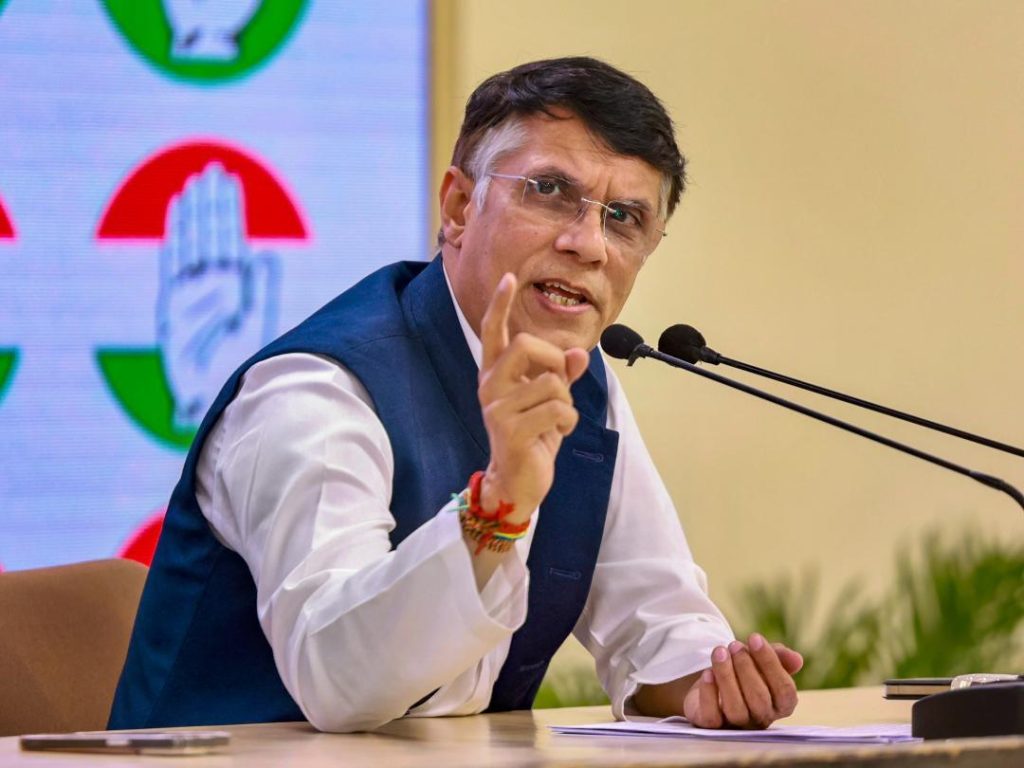
Israel Shares Map Showing J&K in Pakistan, Apologises Later
In a recent controversy, the Israel Defense Forces (IDF) shared a map on social media that showed the Indian Union Territory (UT) of Jammu and Kashmir as a part of Pakistan. The move sparked widespread outrage and criticism, with many calling it a serious diplomatic blunder.
The map, which was published on the IDF’s Twitter account, showed the entire region of Jammu and Kashmir as part of Pakistan, including the UT’s capital city of Srinagar. The map also showed the Indian state of Jammu and Kashmir as a part of Pakistan, which is not only geographically incorrect but also a sensitive issue for India.
The controversy was quickly picked up by Congress leader Pawan Khera, who targeted Prime Minister Narendra Modi, saying, “Another day, another feather in Vishwaguru’s cap. His ‘friend’ shows J&K as a part of Pakistan.” Khera was referring to India’s close ties with Israel, with both countries sharing a strong strategic partnership.
The IDF later issued an apology, saying that the map was an illustration and doesn’t depict precise borders. The IDF’s statement was met with widespread criticism, with many calling it an insincere apology.
The controversy has raised questions about the IDF’s understanding of international borders and its sensitivity to regional issues. It has also raised concerns about the implications of such a mistake, with some arguing that it could have serious repercussions for India-Israel relations.
The Indian government has been vocal in its criticism of the IDF’s mistake, with the Ministry of External Affairs (MEA) issuing a statement saying, “We take strong exception to the Israeli Defense Forces’ map showing Jammu and Kashmir as part of Pakistan. The map is inaccurate and unacceptable. We expect Israel to respect India’s sovereignty and territorial integrity.”
The MEA’s statement was followed by a strong reaction from the Congress party, with leader Rahul Gandhi saying, “The Israeli Defense Forces’ map showing Jammu and Kashmir as part of Pakistan is a grave error. It’s not just a mistake, but a reflection of the increasing disregard for India’s sovereignty and territorial integrity by the Israeli government.”
The controversy has also sparked a debate about the need for India and Israel to review their strategic partnership. While both countries have strong ties, the controversy has raised questions about the wisdom of India’s close relationship with Israel, particularly with regards to the sensitive issue of Jammu and Kashmir.
The debate has also highlighted the need for greater sensitivity and respect for international borders. While mistakes can happen, the IDF’s apology was seen as insincere by many, who argued that it was a deliberate attempt to downplay the seriousness of the issue.
The controversy has also sparked a debate about the role of social media in diplomacy. The IDF’s map was shared on Twitter, which has become a key platform for diplomatic communication. The controversy has raised questions about the need for greater caution and sensitivity in using social media for diplomatic purposes.
In conclusion, the controversy surrounding the IDF’s map showing Jammu and Kashmir as part of Pakistan has raised serious questions about the IDF’s understanding of international borders and its sensitivity to regional issues. The apology issued by the IDF was met with widespread criticism, and the controversy has sparked a debate about the need for greater caution and sensitivity in using social media for diplomatic purposes.






